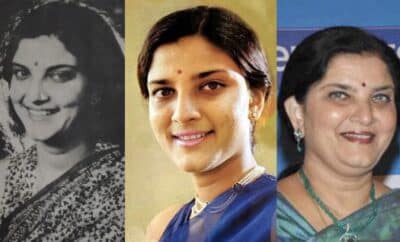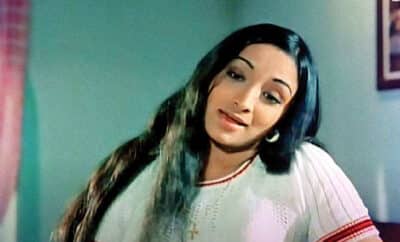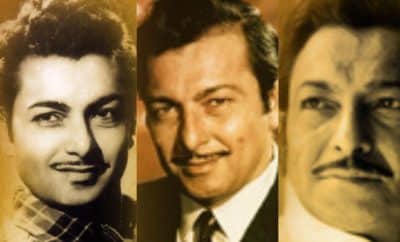Song Sketch
An Ode to Hope – Kahan Tak Ye Mann Ko – Baaton Baaton Mein
Basu Chatterjee films have a certain petiteness and a gentleness in them. The humour is not gross, the comedy is more than a loud slapstick. An ordinariness which appeals the audiences.. He announced the arrival of a new kind of cinema that was unshakable from the regular lives of the people. Though some of the biggest stars in Hindi film lined up to work with him, in a strange way it were the smaller stars, ‘the’ every man of Hindi cinema that really came into their own in Basu Chatterjee films. Actors like Amol Palekar. Behind Amol Palekar’s meek persona sneaks an actor. Basu Chatterjee wasn’t a larger than life director. Most of his captivating characters inhabit a middle-class, urban, educated sphere and gaily wear an air of high morality and deep rooted warmth.
Baaton Baaton Mein is a precise story knitted around the daily life of people in Bombay, shuttling to express timings. Those times when mothers were anguished over their daughters if they delayed getting married and settling down well in life. Searching for wealthy grooms was a prime concern after the daughters found employment.
Kahan Tak Yeh Mann Ko Andhere Chhalenge is a soft number that mirrors the soul of the two lovers, having deep feelings for each other but not willing to set aside their ego. They stop seeing each other, but still hope to meet again like before. Lyrics by Yogesh reflect refined sensibility, lined with deep intelligence and observation. The lyrics remind you of certain lines from “A Tale of Two Cities” by Charles Dickens –
It was the best of times, it was the worst of times,
it was the age of wisdom, it was the age of foolishness,
it was the epoch of belief, it was the epoch of incredulity,
it was the season of Light, it was the season of Darkness,
it was the spring of hope, it was the winter of despair
Kishore Kumar’s sonorous rendition is a perfect humm-along song even today. Kishore Kumar has a great quality to attract the audience. Great quality to create feelings in his songs through his commanding voice. It accurately describes the mood and theme of the song. Rajesh Roshan’s score is in perfect unison with the mood of the film. Though the song comes under sad – separation genre it doesn’t depress you no matter how many times you hear it. It has a certain swing which makes it a lilting tune. Like the lyrics of the song, the tune gives you a certain hope of good times. A hope for the spring to come after the fall. It is an ode to hope. Though Rajesh Roshan, a composer not in the league of his father, Roshan, but a man who created a niche following with his brilliant contribution. In this particular song also, his music complements Kishore Kumar’s voice very readily. Using lesser number of instruments for a score like this enhances Kishore Kumar’s voice. Highlighting the nature of the song with his malleable voice.
bhale tej kitna hawa ka ho jhonka
magar apne mann me tu rakh yeh bharosa
jo bichhde safar me tujhe phir milenge
udasi bhare din kabhi toh dhalenge
https://www.youtube.com/watch?v=0XBeenl_1E8




Vijay Kumar Jai
November 24, 2018 at 2:18 pm
I think Kishore Kumar’s voice was getting a tad stale out of over exposure in late sixties and seventies. Rajesh Roshan gave him a fresh breath of air in films like Julie and again in this Baton baton mein song, reminding you of the Kishore Kumar of the late fifties and early sixties.
About Baton baton mein, the lovers are complacent and are taking each other for granted, but once they realize that their separation is going to be real, they immediately let go their egos.